Ditapis dengan
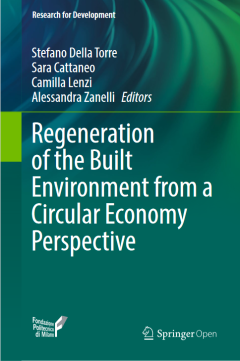
Regeneration of the Built Environment from a Circular Economy Perspective
Regeneration of the Built Environment from a Circular Economy Perspective is a groundbreaking publication that explores the relationship between sustainable development, circular economy principles, and the transformation of the built environment. As urbanization accelerates and natural resources become scarce, it is imperative to shift towards a circular economy model that promotes the regener…
- Edisi
- -
- ISBN/ISSN
- 978-3-030-33256-3
- Deskripsi Fisik
- -
- Judul Seri
- -
- No. Panggil
- -

Development, Social Change and Environmental Sustainability
“Development, Social Change and Environmental Sustainability” edited by Sumarmi and published by CRC Press in 2021, delves into the intricate relationship between development, social change, and environmental sustainability. This comprehensive book offers a multidisciplinary perspective on the challenges and opportunities faced by societies striving for sustainable development. The book bri…
- Edisi
- -
- ISBN/ISSN
- 978-1-003-17816-3
- Deskripsi Fisik
- -
- Judul Seri
- -
- No. Panggil
- -
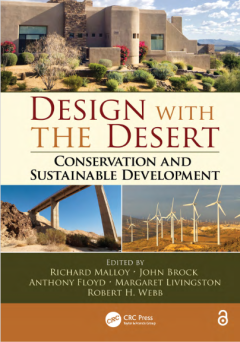
Design with The Desert : Conservation and Sustainable Development
This groundbreaking publication explores the unique challenges and opportunities associated with designing in desert environments, focusing on the principles of conservation and sustainable development. The book delves into the complex relationship between humans and desert ecosystems, highlighting the importance of thoughtful design practices in minimizing environmental impact and maximizing r…
- Edisi
- -
- ISBN/ISSN
- 978-1-4398-8135-4
- Deskripsi Fisik
- -
- Judul Seri
- -
- No. Panggil
- 577.54
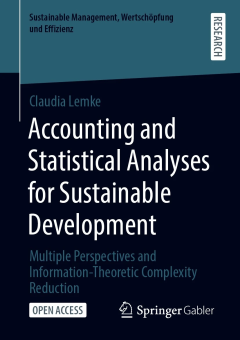
Accounting and Statistical Analyses for Sustainable Development : Multiple Pe…
In this Open Access publication Claudia Lemke develops a comprehensive Multi-Level Sustainable Development Index (MLSDI) that is applicable to micro, meso, and macro objects by conducting methodological and empirical research. Multi-level comparability is crucial because the Sustainable Development Goals (SDGs) at macro level can only be achieved if micro and meso objects contribute. The author…
- Edisi
- -
- ISBN/ISSN
- 978-3-658-33246-4
- Deskripsi Fisik
- 288 p.
- Judul Seri
- -
- No. Panggil
- -
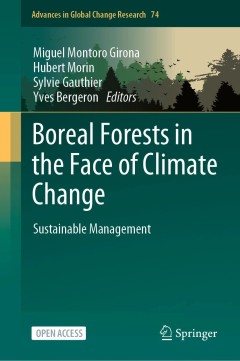
Boreal Forests in the Face of Climate Change : Sustainable Management
This open access book explores a new conceptual framework for the sustainable management of the boreal forest in the face of climate change. The boreal forest is the second-largest terrestrial biome on Earth and covers a 14 million km2 belt, representing about 25% of the Earth’s forest area. Two-thirds of this forest biome is managed and supplies 37% of global wood production. These forests a…
- Edisi
- -
- ISBN/ISSN
- 978-3-031-15988-6
- Deskripsi Fisik
- XLIX, 837p
- Judul Seri
- -
- No. Panggil
- -
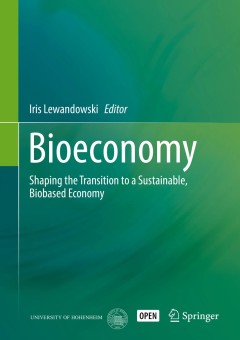
Bioeconomy : Shaping the Transition to a Sustainable, Biobased Economy
This book defines the new field of "Bioeconomy" as the sustainable and innovative use of biomass and biological knowledge to provide food, feed, industrial products, bioenergy and ecological services. The chapters highlight the importance of bioeconomy-related concepts in public, scientific, and political discourse. Using an interdisciplinary approach, the authors outline the dimensions of the …
- Edisi
- -
- ISBN/ISSN
- 978-3-319-68152-8
- Deskripsi Fisik
- VI, 356p
- Judul Seri
- -
- No. Panggil
- -
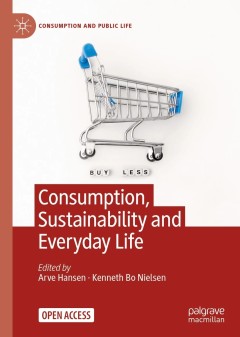
Consumption, Sustainability and Everyday Life
This open access book seeks to understand why we consume as we do, how consumption changes, and why we keep consuming more and more, despite the visible damage we are doing to the planet. The chapters cover both the stubbornness of unsustainable consumption patterns in affluent societies and the drivers of rapidly increasing consumption in emerging economies. They focus on consumption patterns …
- Edisi
- -
- ISBN/ISSN
- 978-3-031-11069-6
- Deskripsi Fisik
- 387p
- Judul Seri
- -
- No. Panggil
- -
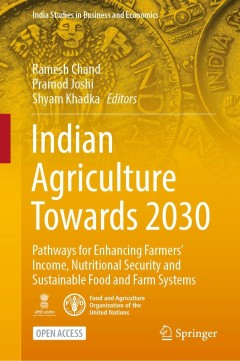
Indian Agriculture Towards 2030 : Pathways for Enhancing Farmers’ Income, N…
This open access book brings together varying perspectives for transformational change needed in India’s agriculture and allied sectors. Stressing the need of thinking for a post-Green Revolution future, the book promotes approaching this change through eight broad areas, indicating the policy shifts needed to meet the challenges for the coming decade (2021-2030). The book comprises of ten…
- Edisi
- -
- ISBN/ISSN
- 978-981-19-0763-0
- Deskripsi Fisik
- 311p
- Judul Seri
- -
- No. Panggil
- -
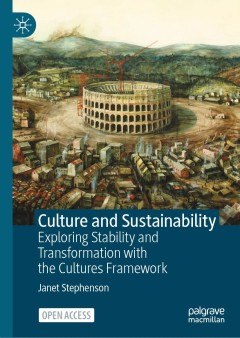
Culture and Sustainability
This Open access book brings a cultural lens, and a distinctive analytical framework, to the problem of transitioning to a sustainable, low-carbon future. The world faces a seemingly impossible hurdle – to radically alter long-established social, economic and technological systems in order to live within the biophysical limits of the globe, while ensuring a just and enduring transition. …
- Edisi
- -
- ISBN/ISSN
- 978-3-031-25515-1
- Deskripsi Fisik
- XVII, 243 p
- Judul Seri
- -
- No. Panggil
- -
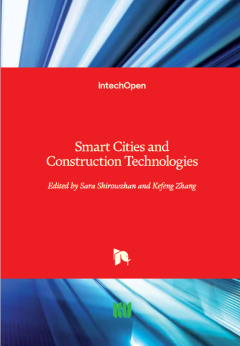
Smart Cities and Construction Technologies
Smart cities are rapidly evolving, leveraging innovative technologies to improve the quality of life for their residents. This book, “Smart Cities and Construction Technologies,” edited by Sara Shirowzhan and published by IntechOpen in 2020, explores the intersection between smart city concepts and construction technologies. The book delves into various aspects of construction technologies …
- Edisi
- -
- ISBN/ISSN
- N 978-1-83880-398-8
- Deskripsi Fisik
- -
- Judul Seri
- -
- No. Panggil
- -
 Karya Umum
Karya Umum  Filsafat
Filsafat  Agama
Agama  Ilmu-ilmu Sosial
Ilmu-ilmu Sosial  Bahasa
Bahasa  Ilmu-ilmu Murni
Ilmu-ilmu Murni  Ilmu-ilmu Terapan
Ilmu-ilmu Terapan  Kesenian, Hiburan, dan Olahraga
Kesenian, Hiburan, dan Olahraga  Kesusastraan
Kesusastraan  Geografi dan Sejarah
Geografi dan Sejarah